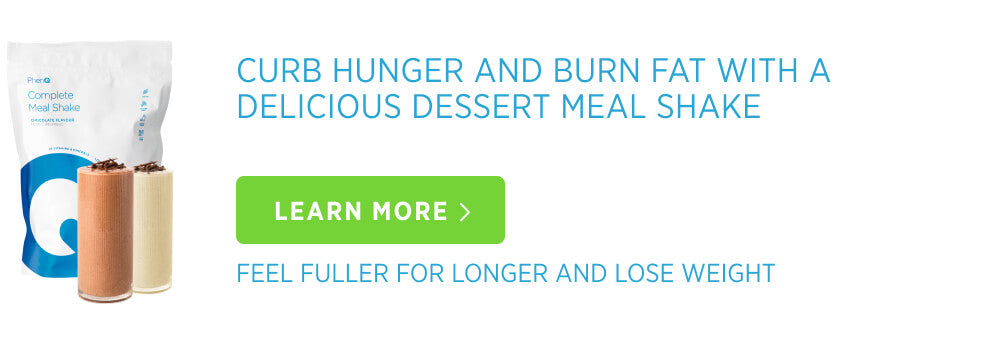Are you tired of weight loss methods that don't produce lasting results? Intermittent fasting could be the answer.
16/8 intermittent fasting is a lifestyle change that has helped countless people shed pounds and improve their overall health. It’s not for everyone, but if you can get on board with the 16/8 method, you will maintain a healthy weight.
While this method is gaining popularity for its simplicity and effectiveness, it's crucial to consider if it's the right fit for you. Here’s what you need to know:
-
Balance with Nutrition: Remember, intermittent fasting should complement a balanced diet rich in whole foods, not replace it. A nutritious diet is key to unlocking the health benefits of fasting.
-
Health Check: Before diving in, consult with your doctor, especially if you have underlying health conditions. This is particularly important if you're on medication or have conditions like diabetes or low blood pressure.
-
Special Considerations: If you're trying to conceive, pregnant, or nursing, intermittent fasting might not be advisable. These life stages require a different nutritional approach.
-
Listen to Your Body: If you experience any side effects while fasting, don't hesitate to seek medical advice. Your health is paramount, and professional guidance can help ensure your fasting journey is safe and effective.
Ultimately, while 16/8 intermittent fasting can be a powerful tool for many, it's essential to personalize your approach to suit your unique health needs and lifestyle.
Understanding the 16/8 intermittent fasting method
16/8 intermittent fasting is a popular weight loss method that involves fasting for 16 hours and eating within an eight hour window.
This increasingly popular eating pattern is easy to follow and can lead to significant weight loss. With the right meal preparation, you'll be well on your way to shedding those extra pounds in no time.
But how does it work, and what are the benefits? Let's dive a little deeper.
The basics of 16/8 intermittent fasting
16/8 fasting, a type of time-restricted fasting, involves choosing a 16-hour fasting window and an eight-hour eating window. During the fasting period, you can enjoy calorie-free drinks like black coffee while maintaining your fast and burning fat.
The best thing about this method is the fact it’s more of a lifestyle change than a diet, making it sustainable and adaptable to your daily routine.
Benefits of intermittent fasting
Intermittent fasting comes with it’s fair share of benefits, including:
- Better metabolism
- Increased fat-burning capabilities
- Reduced risk of health complications including heart disease and Type 2 Diabetes
- Less inflammation in the body
- Improved mood and energy levels once you’ve adjusted to the routine
Believe it or not, you can still experience success without exercising as long as you eat clean, watch your portion sizes, and get enough sleep. Maintaining a healthy lifestyle is essential for intermittent fasting to be effective.
How intermittent fasting works for weight Loss
During a 16-hour fast, your body goes through two distinct phases linked to weight loss. The first phase begins after four to 16 hours of fasting while the second phase kicks in after around 16 hours. Insulin, produced by the pancreas, helps your body absorb glucose from carbohydrates to provide energy for daily activities.
With intermittent fasting, you can expect to lose an average of 15 lbs over three to 12 months. Not a bad rate of weight loss in anyone’s book.
How Does 16/8 Intermittent Fasting Affect Blood Sugar Control?
Intermittent fasting, particularly the 16/8 method, can have a positive impact on blood sugar management. By restricting your eating to an 8-hour window, you allow your body to rest and reset during the 16-hour fasting period.
Key Benefits of 16/8 Fasting on Blood Sugar:
-
Lower Fasting Insulin Levels: This form of fasting often results in decreased insulin levels. With less insulin circulating in your bloodstream, your body becomes more efficient at breaking down fat and using glucose.
-
Reduced Blood Sugar Levels: Several studies suggest that intermittent fasting can help lower blood sugar levels. This reduction is beneficial in managing and potentially lowering the risk of developing conditions like type 2 diabetes.
-
Improved Insulin Sensitivity: Over time, fasting may enhance your body's sensitivity to insulin, meaning your cells are better able to use available glucose in the blood for energy.
By implementing the 16/8 fasting method, you may experience a more stable and controlled blood sugar level, contributing to overall metabolic health. Always consider discussing significant dietary changes with a healthcare provider.
How Can 16/8 Intermittent Fasting Lead to Overeating or Potential Weight Gain?
Engaging in 16/8 intermittent fasting, where eating is confined to an eight-hour window, might unintentionally lead to overeating. During this restricted timeframe, individuals might consume more food than normal in an effort to compensate for the fasting period. This can sometimes result in caloric surplus, counteracting the benefits of the fast.
Potential Consequences
-
Weight Gain: Consuming more calories than your body needs can lead to weight gain, even when practicing intermittent fasting. The allure of eating without limits during the eating hours might encourage excessive calorie intake.
-
Digestive Issues: Rapidly consuming large meals, often high in calories, can burden the digestive system. This might lead to discomfort and digestive disturbances.
-
Unhealthy Eating Habits: The pressure to eat within a limited timeframe can promote poor food choices, such as opting for quick, high-calorie snacks instead of balanced meals featuring whole foods.
Comparing Weight Loss Strategies
Current research indicates that the weight loss results derived from intermittent fasting do not significantly surpass those achieved through standard calorie restriction. Both methods may only offer moderate weight loss.
Alternative Approaches
If your primary intention is weight management, consider these strategies:
- Calorie Control: Monitor and moderate overall calorie intake.
- Increased Activity: Regular exercise can help burn additional calories.
- Whole Foods: Prioritizing nutrient-rich, whole foods might enhance diet quality and satisfaction.
- Adequate Rest: Sufficient sleep supports metabolic processes and aids weight management.
By understanding the potential pitfalls of 16/8 intermittent fasting, you can better tailor your approach to achieve your health and wellness goals.
Getting ready for your first week of 16/8 fasting
Before diving head first into your 16/8 fasting routine, you should set realistic weight loss goals, plan your meals, and stay hydrated. By starting small and gradually working up to a longer fasting window, you can create a schedule that fits your lifestyle while giving your body enough time to adjust.
Setting realistic goals

To succeed with 16/8 intermittent fasting long term, it’s important to set realistic weight loss goals. Rather than trying to lose as much weight as you can within a tiny window of time, you should aim to shed a small number of pounds consistently.
Setting small monthly goals is often better than aiming to lose half of your current body weight as quickly as possible. Working towards small achievable goals will help you stay on track, keep your morale consistently high, and result in real success.
Meal planning and preparation

When planning your meals, focus on nutritious whole foods to maximize the benefits of your diet:
- Fruits: apples, bananas, berries, oranges
- Veggies: broccoli, cauliflower, leafy greens
- Whole Grains: rice, oats, quinoa
- Healthy Fats: olive oil, avocados
- Proteins: eggs, fish, legumes, poultry
Stay hydrated with calorie-free beverages like water and unsweetened tea or coffee. These not only help control appetite but also maintain hydration during fasting periods.
Staying hydrated

Practical Tips
- Set Reminders: Use timers to signal the start and end of your eating window, ensuring you stay on track.
- Gradual Transition: Ease your body into fasting by gradually increasing your fasting period, allowing it to adjust naturally.
By following these steps, you'll be well-equipped to embark on your 16/8 intermittent fasting journey, balancing structure with flexibility to meet your personal needs.
Drinking plenty of water while fasting is essential for maintaining your energy levels and avoiding dehydration. Make sure to drink lots of water and other non-caloric drinks to keep yourself feeling energized and healthy during your fast.
Tip: Women should aim to drink 2.2 liters and men three liters of water per day to stay properly hydrated.
Tips for Monitoring Progress and Adjusting Your Fasting Routine
Embarking on a fasting regimen can be transformative, but it’s important to keep tabs on your progress and tweak the routine as needed. Here are some practical strategies to help you refine your fasting practice for optimal results:
-
Select Your Fasting Window Wisely
Begin by choosing a fasting and eating schedule that fits your lifestyle. For instance, you might fast until noon and wrap up your meals by 8 p.m. This timeframe can set a solid foundation for your routine. -
Track Your Well-Being
Pay attention to your body's cues. Keep a journal to log your hunger levels, mood swings, and energy throughout the day. Noting these changes can provide valuable insights into how your body responds to fasting. -
Evaluate After a Few Days
Give yourself a few days to adjust to the new routine. After this period, revisit your journal entries. Are there specific times when your energy dips, or do you notice a pattern in your hunger? -
Make Evidence-Based Adjustments
Use the information you’ve collected to make informed decisions about adjusting your fasting schedule. You might decide to extend or shorten your fasting hours based on how you feel. -
Stay Flexible
Remember that flexibility is key. It’s okay to change your eating window or take a break from fasting if you find it doesn’t suit your current lifestyle or health goals.
These steps will not only help you maintain your fasting practice but will also ensure that it enhances your overall well-being.
Choosing the Right Eating and Fasting Window
When selecting a time window for eating and fasting, there are several factors to consider ensuring it fits seamlessly into your lifestyle and dietary goals.
-
Daily Routine Compatibility:
Evaluate your typical day. If you start your day early, you may want an eating window from 7 a.m. To 3 p.m., which accommodates an early breakfast. Night owls might prefer a different window, like 2 p.m. To 10 p.m., allowing for later dinners. -
Work and Social Schedule:
Consider your work and social commitments. An eating window of 12 p.m. To 8 p.m. Aligns with traditional lunch and dinner times, making it easier to manage work meetings or social dinners. -
Meal Preferences:
Reflect on your eating habits. If you enjoy a hearty breakfast, a window from 9 a.m. To 5 p.m. Gives time for breakfast, lunch, and an early dinner. For those who prefer skipping breakfast, eating from noon to 8 p.m. Might be ideal. -
Experimentation and Flexibility:
Be open to adjusting your window based on what feels best. Trial different windows to find what optimizes your energy levels and hunger management. -
Setting Reminders:
To help maintain your schedule, use alarms or calendar alerts to remember when to start and end your eating period. This ensures consistency and helps in adapting to your chosen window.
By considering these aspects, you can choose a time frame that supports both your lifestyle and health objectives, making your fasting journey more effective and enjoyable.
Popular Time Windows for 16/8 Intermittent Fasting
The 16/8 intermittent fasting approach involves fasting for 16 hours and eating within an 8-hour window. Choosing the right time frame is crucial for maintaining this routine effectively. Here are some common time windows you might consider:
-
Morning to Afternoon (7 a.m. To 3 p.m.): This schedule suits early risers who don’t mind finishing their meals before mid-afternoon. It allows for a hearty breakfast to kickstart your day.
-
Late Morning to Early Evening (9 a.m. To 5 p.m.): Ideal for those who prefer starting their day with breakfast. You can enjoy a traditional lunchtime and wrap up with an early dinner.
-
Noon to Night (12 p.m. To 8 p.m.): A favored option for many, allowing you to skip breakfast, yet still enjoy a full lunch and dinner. Snacks can be included within this window to maintain energy levels.
-
Afternoon to Night (2 p.m. To 10 p.m.): Perfect for night owls who enjoy evening meals and can manage an extended morning fast.
While these are popular schedules, the best window depends on your lifestyle and commitments. It's about finding a rhythm that aligns with your personal habits and preferences, ensuring the method is sustainable over the long term. Experiment with different windows to discover what works best for you.
Foods to eat and avoid during your 16/8 fasting Window
During the 16/8 fasting window, you should choose healthy foods including lean proteins, complex carbohydrates, and healthy fats. Foods to avoid include processed foods, sugary drinks, and alcohol.
By making smart food choices, you can maximize the benefits of fasting and achieve the weight loss goals you deserve—even when you’re rushed off your feet. It's crucial to maintain a healthy diet during your eating period in 16/8 intermittent fasting. This not only supports your body's nutritional needs but also enhances the effectiveness of the fasting process.
During the fasting period, opt for calorie-free beverages like water, unsweetened teas, or black coffee. These choices help keep your calorie intake in check while ensuring you stay hydrated and alert.
By balancing your meals with nutrient-rich foods and staying mindful of your beverage choices, you'll find it easier to stay on track and reap the full benefits of your fasting routine.
Healthy food choices
To stay healthy while fasting 16/8, here are some foods you should weave into your diet:
- Fruits: tomatoes, apples, berries, bananas, berries, oranges or satsumas, peaches, pears, plums and tomatoes.
- Veggies: leafy greens like kale and spinach, broccoli, sprouts, cauliflower, sweetcorn, and cucumber.
- Whole grains: Buckwheat, barley, quinoa, brown rice, and oats.
- Good fats: fatty fish oils, whole nuts, avocados, and olive oil.
- Proteins: fish, eggs, legumes, pulses, unprocessed red meat, poultry, nuts, and seeds.
These foods will flood your body with the nourishment it needs to succeed while helping you steer clear of dreaded hunger pangs or cravings.
Foods to avoid
To maximize the benefits of 16/8 fasting, it's best to avoid processed foods, sugary drinks, and alcohol. These foods can cause spikes in blood sugar levels, leading to increased hunger and cravings.
Instead, focus on our healthy food list above and check out our essential rundown of easy 30-minute healthy meals.
Weaving exercise into your 16/8 fasting routine

Exercise can help to boost metabolism and aid weight loss while fasting. Adding workouts like high intensity interval training (HIIT), strength training, and yoga, barre, and pilates can complement your fasting routine and help you achieve even better results.
The benefits of exercise and 16/8 intermittent fasting
Exercising when you’re 16/8 fasting can help you maximize your weight loss potential by:
- Improving insulin sensitivity
- Enhance your sleep quality
- Burning fat more efficiently
- Optimizing your hormones
- Boosting your mental health and wellbeing
Regular exercise can also help you achieve your weight loss and muscle gain goals by increasing metabolism and burning more calories.
Remember: When it comes to exercise, do what suits you best. A brisk walk with your favorite songs is a healthy form of exercise as is dancing in the kitchen regularly. Do what’s achievable, be consistent, and you will reap the rewards of exercise and intermittent fasting.
Balancing exercise and intermittent fasting
To achieve the best results with 16/8 fasting, striking a healthy balance between exercise and fasting is essential. Make sure you get enough energy from your meals, stay hydrated, get enough sleep, and you will stay on track.
By incorporating these tips into your daily routine, you can enjoy the benefits of both exercise and fasting and achieve your weight loss goals.
Common struggles and solutions during the first week of 16/8 fasting
Embarking on your 16/8 fasting journey can present a few initial challenges, or ‘teething problems.’ Let’s explore the main hurdles you might face and how to overcome them.
Hunger pangs and cravings
One of the most immediate physical symptoms when starting 16/8 intermittent fasting is hunger. You may experience intense hunger pangs as your body adjusts to the new eating schedule. Staying hydrated and eating slowly—paying attention to each bite—can help keep these pangs at bay.
If hunger persists, consider incorporating healthy snacks like nuts, fruits, and vegetables into your routine to maintain a feeling of fullness and satisfaction.
Fatigue and low energy
Another common side effect in the short term is fatigue or low energy. You might feel weaker than usual as your body adapts to its new energy sources. To combat this, ensure you're getting enough rest and seek support from friends and family.
Maximize your eating window by preparing balanced meals you genuinely enjoy. This way, you’ll have the energy needed to keep going.
Social and emotional challenges
Beyond physical symptoms, social and emotional challenges can arise. Overcoming these during the first week of 16/8 fasting may require reaching out for support to stay connected and avoid loneliness. Surround yourself with understanding friends and family who support your fasting journey.
Remember: you're not alone in this journey. With perseverance and patience, you can reap the rewards of intermittent fasting. You’ve got this.
Can 16/8 Intermittent Fasting Extend Longevity?
When it comes to intermittent fasting—specifically the 16/8 method—the evidence on extending longevity is intriguing but somewhat limited in humans.
Insights from Animal Studies
Animal research often blazes the trail for dietary insights, and in this case, it suggests that intermittent fasting can increase lifespan. Studies involving different species have shown that fasting might impact metabolic pathways, enhance insulin sensitivity, and even instigate positive behavioral shifts. All these factors combined could potentially contribute to a longer life.
Human Studies: A Developing Field
Although human studies are still catching up, preliminary findings align with animal research. Some experts suggest that by improving insulin sensitivity and influencing metabolic functions, fasting might indirectly support longevity. However, it's crucial to note that the exact mechanisms are still being explored and aren't fully understood.
The Bottom Line
While animal studies are promising, more human research is needed to definitively answer whether the 16/8 intermittent fasting approach can extend human lifespan. The science is in a state of evolution, so staying updated with new research is essential for anyone interested in this dietary habit.
How Might 16/8 Intermittent Fasting Affect Hormonal Changes and Menstrual Cycles?
Intermittent fasting, specifically the 16/8 method, has sparked interest for its potential effects on hormonal health and menstrual cycles. Yet, it's important to tread carefully, as the bulk of our knowledge comes from animal research rather than extensive human studies.
Hormonal Fluctuations
- Animal Studies: Research on animals has indicated that intermittent fasting can lead to hormonal shifts, primarily through changes in eating patterns. These alterations may have downstream effects on overall hormonal balance.
- Human Implications: For individuals with ovaries, these hormonal shifts might impact menstrual cycles and fertility. However, it's crucial to note that comprehensive human studies are sparse, leaving a gap in definitive understanding.
Menstrual and Reproductive Health
- Potential Impacts: In those experiencing regular menstrual cycles, any significant dietary change could potentially influence cycle regularity. This is due to the body's sensitivity to energy availability and intake.
- Postmenopausal Considerations: For postmenopausal individuals, intermittent fasting might interact differently. Given postmenopausal changes, such as reduced insulin sensitivity and an increased risk of weight gain, the structured eating window of 16/8 might offer some metabolic benefits.
Need for More Human Studies
While intriguing findings from animal studies provide a foundation, robust human trials are essential to fully determine how intermittent fasting impacts reproductive hormones and cycles. Until then, those considering 16/8 fasting, particularly individuals with concerns about menstrual health, should consult healthcare professionals.
16/8 fasting: final thoughts
16/8 intermittent fasting is a powerful lifestyle change that has helped people from all walks of life lose weight and boost their overall health.
By understanding the basics of fasting, preparing for the first week, eating well, and weaving exercise into your routine, you can achieve impressive weight loss results.
Stay committed, keep motivated, listen to your body, and you stand the best possible chance of enjoying the transformative power of 16/8 fasting. Good luck.
If you want to maximize the results of your 16/8 fast in a way that’s healthy and effective, add PhenQ’s unique weight loss supplement into your routine.
16/8 intermittent fasting: FAQs
How much weight can you lose in a week with 16/8 intermittent fasting?
If you're following a 16/8 intermittent fasting regime, you can expect to lose up to one to three pounds of weight each week. Your results will depend on your age, gender, and overall body composition, so adjust your expectations accordingly.
How much weight can I lose in seven days with intermittent fasting?
You can expect to lose between 0.25-1.65 pounds (0.11-0.75 kg) per week with intermittent fasting, depending on your caloric intake.
This means that you can expect to lose around one to three pounds (0.45-1.36 kg) within seven days.
How long does it take to start losing weight on a 16/8 fast?
With the right 16/8 fasting routine, you could start to notice a difference in as little as 10 days. Depending on your overall goals, losing significant weight could take up to 10 weeks, with an average of one pound of loss per week.
How much weight can you lose in a month with intermittent fasting 16/8?
With intermittent fasting 16/8, you can expect to see a significant amount of weight loss each month. With regular practice and following a calorie deficit of 500 per day, you can achieve up to four to eight pounds of weight loss in just one month.




